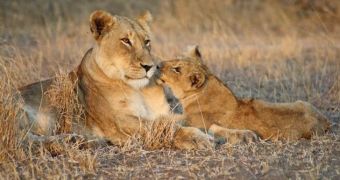Scientists at the Stanford University School of Medicine say that, according to their investigations, most mammals help ensure the survival of their species by choosing whether they'll have a baby boy or a baby girl.
The researchers explain that females are the ones that have a say in this matter, and that they settle on having a “son” or a “daughter” depending on which of these options would provide them with more grandchildren.
“You can think of this as being girl power at work in the animal kingdom. We like to think of reproduction as being all about the males competing for females, with females dutifully picking the winner.
“But in reality females have much more invested than males, and they are making highly strategic decisions about their reproduction based on the environment, their condition and the quality of their mate,” specialist Joseph Garner says.
What he means is that healthy, strong females that get the chance to mate with strapping males will more often than not give birth to sons that will carry on their legacy.
On the other hand, females that are in a poor condition choose to give birth to daughters, seeing how their male offspring would probably not be strong enough to survive on the long run and pass on their genes.
Until now, it was believed that breeding in the animal kingdom boiled down to chance and randomness. The theory developed by the Stanford researchers contradicts this assumption.

 14 DAY TRIAL //
14 DAY TRIAL //